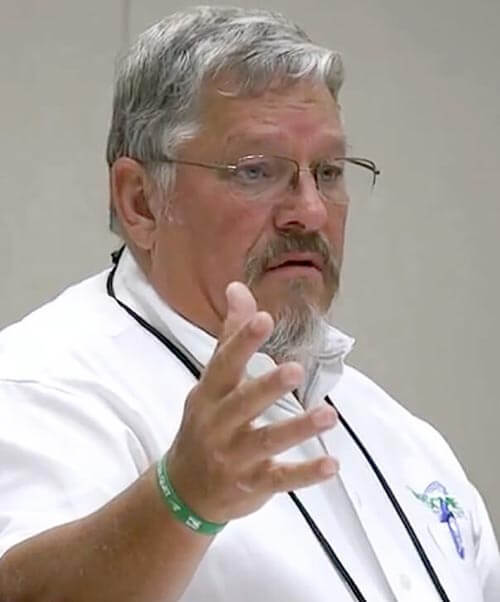AFSCME Now: What are some ways in which people in Iowa are being hurt by this law?
Homan: “The state stripped away overtime eligibility for many classifications. One of the largest classifications was RNs (registered nurses). After the law’s passing, the [state] started saying ‘You’re going to work overtime and we’re not going to pay you for it. And if you don’t work overtime, we’re going to turn you into the nursing board and take away your license for abandoning your patients.’”
Another example Homan shared was of a 28-year state worker who, come next month, will be out of a job. She was moved to another department where she became the least-senior person -- subject to elimination as a result of the new law and unable to receive bumping rights.
Without a grievance system in place, said Homan, “It’s back to the good old boy or good old girl network” where if you don’t play ball with the boss, you can be fired with no recourse.
Not only are state employees affected, but so are the communities they serve, with staffing shortages leading to crises already.
AFSCME Now: How is Iowa not taking “no” for an answer? What are you doing to fight?
Homan: “The first thing we did was to contact every employer we worked with to get contracts extended,” said Homan. Of the nearly 160 contracts they represent, they got some 145 extended.
“Next, we had to figure out how to collect dues,” he said. For that, Council 61 turned to the International Union for help, rolling out PledgeUp system, which allowed the union to re-sign 5,500 members to date of the 9,000 who had to be dropped from the rolls after dues deduction became illegal under the anti-union law. Council 61 also signed up more than 100 new members.
Homan also formed important strategic partnerships with others who’re suffering in the new landscape, like the Iowa State Education Association, whose president, Tammy Wawro, has become an ally.
“We have become true partners, because they’re being attacked like we’re being attacked. What gives me hope is these partnerships – that we can go out and fight these battles together,” he said.
Homan hit the road, too. “I held about 90 town halls … in every major institution in this state, in every major city in this state – everywhere we have a large concentration of employees, or even a small concentration, and I went out there and talked to them about what happened.”
AFSCME Now: What does the future hold for Council 61?
Homan: “Everything we’re doing is based on one thing: Nov. 6, 2018. That’s the next general election. We’re going to motivate our membership to be actively engaged in the political process and take our state back.”
His message to people in other states, especially those who think they can rest on their laurels: “They can’t take for granted that what they have today will be there for them tomorrow, or six months from now, or next year. What happened in Wisconsin,” he said of that state’s attack on public workers, “what happened in Iowa, can happen to you. You have to get engaged in the political process to elect people who are going to do what’s right for working men and women and what’s right for the labor movement.”

